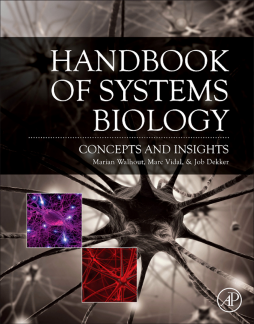
Additional Information
Book Details
Abstract
This book provides an entry point into Systems Biology for researchers in genetics, molecular biology, cell biology, microbiology and biomedical science to understand the key concepts to expanding their work. Chapters organized around broader themes of Organelles and Organisms, Systems Properties of Biological Processes, Cellular Networks, and Systems Biology and Disease discuss the development of concepts, the current applications, and the future prospects. Emphasis is placed on concepts and insights into the multi-disciplinary nature of the field as well as the importance of systems biology in human biological research. Technology, being an extremely important aspect of scientific progress overall, and in the creation of new fields in particular, is discussed in 'boxes' within each chapter to relate to appropriate topics.
- 2013 Honorable Mention for Single Volume Reference in Science from the Association of American Publishers' PROSE Awards
- Emphasizes the interdisciplinary nature of systems biology with contributions from leaders in a variety of disciplines
- Includes the latest research developments in human and animal models to assist with translational research
- Presents biological and computational aspects of the science side-by-side to facilitate collaboration between computational and biological researchers
"Systems biology is a field concerned with the interactions of biomolecules, tissues, and organs amongst each other. This work is essentially an introductory textbook for this field as well as a reference for scientists working in it. Editors Walhout and Dekker are systems biologists, while Vidal is a geneticist. They bring together numerous contributors with backgrounds ranging from physics to various biological specialties."--Reference & Research Book News, December 2013 "This book provides an entry point into Systems Biology for researchers in genetics, molecular biology, cell biology, microbiology and biomedical science to understand the key concepts to expanding their work."--Doody.com, April 24, 2013
